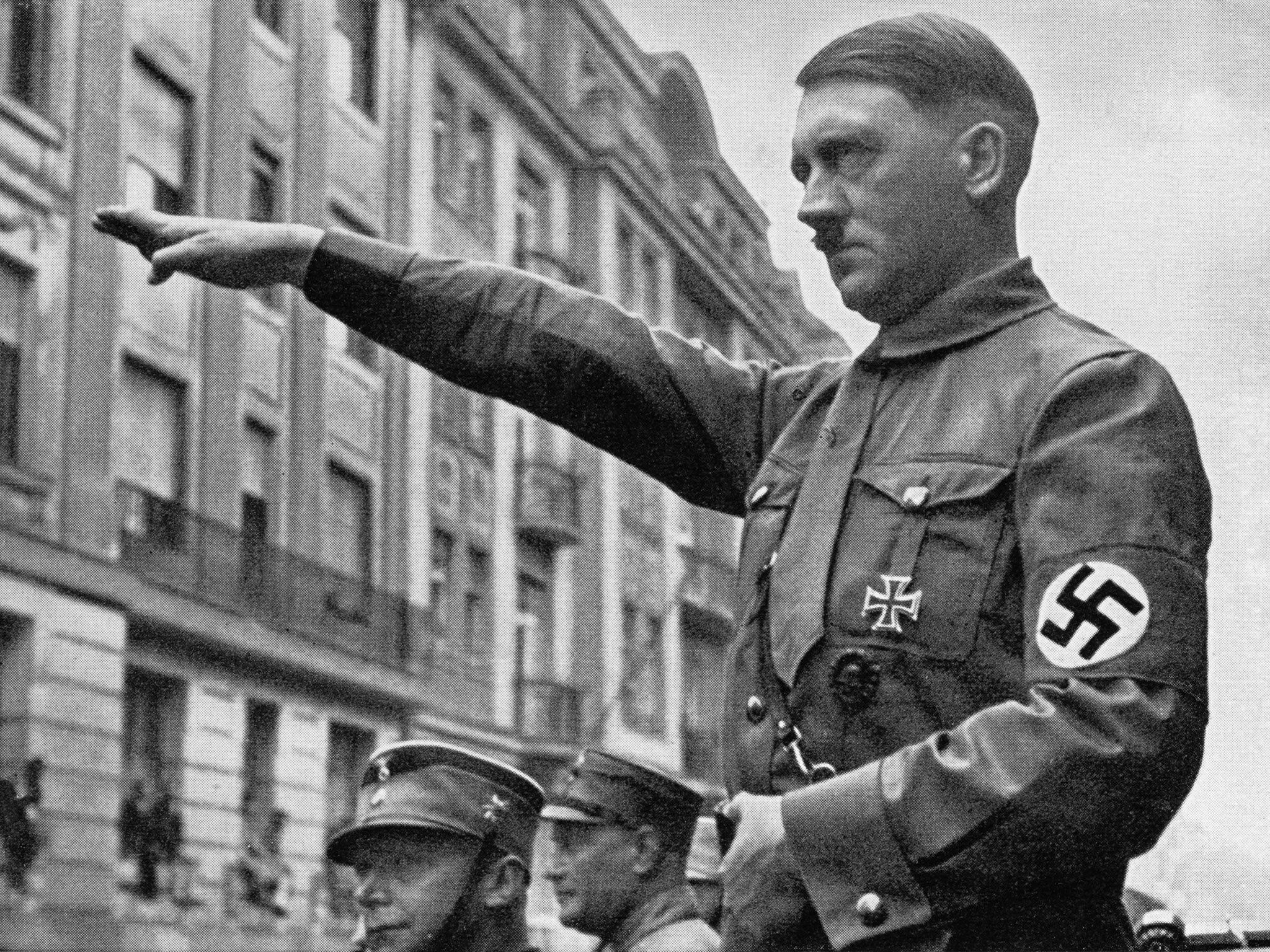Adolf Hitler was a 'super junkie' whose veins collapsed after thousands of injections, claims new book
Bestseller indicates heavy reliance on drugs was behind Nazi leader's 'increasingly erratic' decision-making in latter stages of the War

Your support helps us to tell the story
From reproductive rights to climate change to Big Tech, The Independent is on the ground when the story is developing. Whether it's investigating the financials of Elon Musk's pro-Trump PAC or producing our latest documentary, 'The A Word', which shines a light on the American women fighting for reproductive rights, we know how important it is to parse out the facts from the messaging.
At such a critical moment in US history, we need reporters on the ground. Your donation allows us to keep sending journalists to speak to both sides of the story.
The Independent is trusted by Americans across the entire political spectrum. And unlike many other quality news outlets, we choose not to lock Americans out of our reporting and analysis with paywalls. We believe quality journalism should be available to everyone, paid for by those who can afford it.
Your support makes all the difference.Adolf Hitler was a “gibbering super junkie” in the final year of the Second World War, an author has claimed.
Award-winning German writer Norman Ohler has written a book recounting how the Nazi leader developed a drug addiction in 1944 that destroyed his veins and led to an increasingly erratic display of decision-making.
Mr Ohler’s book, Blitzed: Drugs in Nazi Germany - or The Total Rush in German - reveals the largely untold story of Nazi Germany's relationship with drugs, disclosing Hitler's addiction for heroin-like substance Eukodol.
He says the leader's compulsion developed after he narrowly survived an assassination attempt in 1944, when the German resistance had planted a bomb in a briefcase under his desk, turning him into a “nervous wreck”.
From this point the Nazis suffered ongoing defeat under Hitler, who showed increasingly "irrational" military tactics. Mr Ohler chronicles how, during the Battle of Berlin in April 1945, the Fuhrer’s supply of drugs ran dry, leading his physician to send raiding parties into the war-torn city centre on motorcycles to scour pharmacies for more. Efforts failed, which he says led to the dictator's suicide in April 1945.
Blitzed exposes the extent to which Hitler's body was ravaged by drugs, containing extracts from the journal of his personal physician, Dr Theo Morell.
One entry reads: “I cancelled injections today, to give the previous puncture holes a chance to heal. Left inside elbow good, right still has red dots (but not pustules), where injections were given.”
The book has been hailed as a “remarkable” work of research in its argument that the heroin-like opiate was largely to blame for Hitler’s erratic and paranoid behaviour towards the end of his life.
Antony Beevor, a British historian and expert in the history of the Second World War, said the book's findings explain Hitler's “completely irrational” military tactics during the last major German offensive in the Battle of the Bulge, and that it shed light on why Operation Foxley, a planned attempt by the British to assassinate the Fuhrer in the final months of the war, was ditched.
Mr Beevor told the BBC's Today programme: “All of these elements show how [Hitler] was really no longer in control of himself, but he was still in control of the German armies. What we’re seeing is an explanation of the fact why the British in 1944 decided no longer to attempt to assassinate Hitler.
“Operation Foxley was cancelled because they realised at this particular stage that the Allies would win the war more rapidly with Hitler in command, than Hitler being replaced by somebody else.”
As well as Hitler's personal drug addiction, the book, to be published in Canada on 6 October, also reveals the widespread consumption of meth-like substance Pervitin among the Germans during battle, which many Nazi soldiers came to rely on.
Discussing the book, Mr Ohler told the Today programme: “The massive abuses of methamphetamine, which we today call crystal meth, by the German army shows that the enemy number one were not the British or the French or the Russians, but fatigue.
“The German army was trying to win the battle against sleep. That’s why they used it and in the beginning it worked wonders in the attack on Poland and in the so-called Blitzkrieg.”
Join our commenting forum
Join thought-provoking conversations, follow other Independent readers and see their replies
Comments